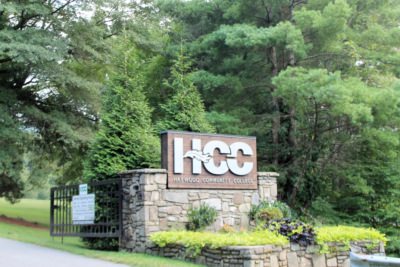“I believe in you.”
These are powerful words. They are the words that can transform doubt into hope and opportunity.
North Carolina’s bold state leaders have set an ambitious goal: to increase the number of North Carolinians with a high-quality postsecondary degree or certification from 1.3 million to 2 million by 2030. What this goal is saying to the students of North Carolina is “we believe in you.”
We believe every student should be able to achieve his/her promise through continuing to pursue educational pathways beyond high school. And as a state, we are dedicated to economic mobility and opportunity.
In order to achieve this goal, more high school students will need customized support to evaluate the variety of postsecondary opportunities in the state and make smart choices about how to pursue their aspirations. We are going to need to put “we believe in you” into action. As you know, North Carolina school counselors are heroic public servants. They guide our students and families during times of challenge and celebration. Yet, North Carolina’s student to counselor ratio is 386-to-1 and this ratio simply does not permit school counselors to spend time supporting each and every student with post-secondary planning. They need partners to help students and families navigate critical milestones whether that be applying to an institution of higher education, completing a FAFSA, or filling out a scholarship application.
College Advising Corps is a national non-profit organization that addresses this challenge by partnering with universities to place recent college graduates as full-time advisers in high schools. College Advising Corps launched our efforts in North Carolina in 2007 with advisers supporting eight high schools. Our advisers from North Carolina State University, Davidson College, Duke University, and the University of North Carolina at Chapel Hill supplement school counselors and help students and families break through the financial, social, and academic barriers on the road to postsecondary education. Our goal is to increase the number of low-income, first-generation college, and underrepresented high school students who enter and complete all forms of higher education. This year, College Advising Corps advisers will support over 140 high schools in more than half of the state’s counties. And our leadership is actively engaged in conversations to bring our model to other universities that are committed to this mission.
The most exciting news is our partnership with schools, universities, and other committed stakeholders is creating impact.
In 2018-19, North Carolina advisers:
- Held 71,065 one-on-one advising sessions to discuss future plans with students.
- Met with 21,146 (86%) seniors at least once to provide them critical support with the post-secondary planning process.
- Helped 15,649 (47%) seniors submit at least one college application.
- Supported seniors in gaining access to $995 million+ in institutional aid and scholarship offers that will open doors for them.
- On average, 53% of the seniors at high schools served by advisers in North Carolina in 2017-18 enrolled in a post-secondary program.
- On average, 84% of the students served by CAC advisers in North Carolina in 2016-17 who entered a post-secondary program persisted into the second year of their pursuit.
While these results are exciting, we are a double bottom-line program. In addition to helping thousands of students enter and complete higher education, we are creating a new generation of leaders for North Carolina. Over two-thirds of the advisers are from underrepresented populations, more than half were Pell-eligible themselves while in college, and many were first in their family to graduate from college. This is the passionate, committed leadership that our state needs to compete in the global economy. They serve with grace and humility while developing the skills to serve families, communities, our state, and the nation.


As we continue to scale and help North Carolina achieve the ambitious 2030 goal, the core of our work remains the same — our students deserve to claim the opportunities they have earned in higher education, our state needs a population that is ready for the 21st century economy, and most of all, each of us deserves to reach our promise — to hear “I believe in you.”
Editor’s note: This perspective was first published by the Hunt Institute. It’s been posted with the author’s permission.





